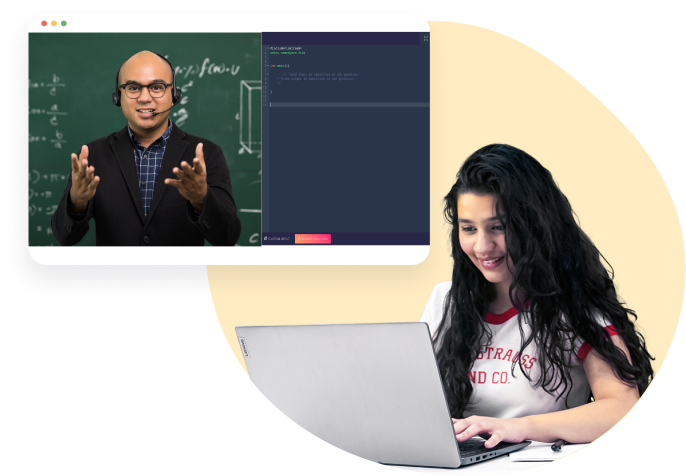Node.JS
Home
Web Development
Node.JS
Zero to Master Program
Node.JS
Node.js training courses offer an in-depth understanding of this powerful JavaScript runtime environment. They typically begin with the basics of Node.js, explaining its non-blocking, event-driven architecture which makes it ideal for building scalable network applications. Participants will learn how to set up a Node.js environment, manage packages with npm, and understand the core modules and functionalities. The courses also cover the development of RESTful APIs, handling asynchronous operations with callbacks, promises, and async/await, and working with databases such as MongoDB. Advanced topics include stream handling, error handling, and best practices for deploying Node.js applications. By the end of the course, attendees will have the skills needed to build, test, and deploy efficient and scalable applications using Node.js, preparing them to tackle real-world projects with confidence.
4.8
12K+ Learners enrolled

This is where you embark on an amazing journey!
Most flexible program in the industry

Freedom to learn
Watch classes anytime at your convenience.

Cheat days
Catch up on the course when life calls you elsewhere.

Features that keep you going

A structured curriculum that makes learning easy

Practice coding problems of varying difficulty

Engagement coach to keep you motivated

Compile & run in an integrated coding environment

Get doubts resolved in 30 mins
1:1 sessions over voice call & chat with our
skilled teaching assistants

Industry leading mentors to help you grow

1:1 Mock interviews with resume and career guidance

Structured feedback to make you better

Get a chance to be referred to your mentors’ company

Experience a seamless job switch
with hiring assistance
Skill-based hiring across all levels of experience

The results

7000+
Transitions to product companies

250+
Trusted placement partners
Frequently asked but seldom read questions
Yes, this course is entirely offline, and we offer some courses online as well.
This course is designed for web developers, backend developers, and full-stack developers who want to build server-side applications using JavaScript. It is suitable for beginners with basic JavaScript knowledge and experienced developers looking to enhance their skills.
You will learn the fundamentals of Node.js, including event-driven programming, asynchronous programming, working with file systems, building RESTful APIs, using Express.js, handling databases with MongoDB, and deploying Node.js applications.
Submissions are evaluated based on criteria such as correctness, completeness, critical thinking, and adherence to instructions, typically using rubrics or grading guidelines provided by the instructor.
Learning Node.js can open up numerous career opportunities as it is widely used in web development. It can lead to roles such as Node.js Developer, Backend Developer, Full-Stack Developer, and can significantly enhance your earning potential.

Meet the faculty legends that will make you legendary
Praveen has a full stack development experience and professional
instructor and trainer for Flutter,
Data Science, Machine Learning and Python Programming. Over the
course of his career he has developed a skill set in analyzing data
and he hopes to use his experience in teaching and data science to
help other people learn the power of programming,
the ability to analyze data, and the skills needed to present the
data in clear and beautiful visualizations.
He is an expert in JavaScript & React (Front-end) and has worked on
open-source projects like Firebug and Zulip.
He has also served as a GCI (Google Code-In) Mentor with Zulip. In
his previous role as a Software Engineer he has worked for
Goibibo-MMT.
Course curriculum for the curious
-
-What is Node.js?
-
-Node.js Features
-
-Advantages of using Node.js
-
-Installing Node.js and npm
-
-Setting up a development environment
-
-JavaScript Syntax and Basics
-
-Variables and Data Types
-
-Operators
-
-Control Structures (if, else, switch, loops)
-
-Functions and Scope
-
-Objects and Arrays
-
-ES6+ Features (let, const, arrow functions, destructuring, etc.)
-
-The Node.js runtime environment
-
-Understanding the Event Loop
-
-Global Objects in Node.js
-
-CommonJS module system
-
-npm (Node Package Manager) basics
-
-Reading and writing files
-
-Working with file paths
-
-Asynchronous and synchronous file operations
-
-Creating a simple HTTP server
-
-Handling requests and responses
-
-Routing in Node.js
-
-Serving static files
-
-Introduction to Express.js
-
-Setting up Express.js
-
-Routing in Express.js
-
-Middleware in Express.js
-
-Serving static files with Express.js
-
-Handling form data and file uploads
-
-Introduction to databases
-
-Connecting to a database (MongoDB)
-
-CRUD operations (Create, Read, Update, Delete)
-
-Using Mongoose for MongoDB
-
-Understanding asynchronous programming
-
-Callbacks
-
-Promises
-
-Async/Await
-
-Introduction to REST architecture
-
-Creating RESTful APIs with Express.js
-
-CRUD operations in RESTful APIs
-
-Testing APIs using tools like Postman
-
-Error handling in Node.js
-
-Using try-catch blocks
-
-Centralized error handling in Express.js
-
-Understanding authentication vs. authorization
-
-Implementing authentication using JWT (JSON Web Tokens)
-
-Protecting routes
-
-Introduction to WebSockets
-
-Implementing WebSockets with Socket.io
-
-Building a real-time chat application
-
-Introduction to testing
-
-Unit testing with Mocha and Chai
-
-Integration testing
-
-Writing test cases for APIs
-
-Preparing a Node.js application for production
-
-Using process managers (PM2)
-
-Deploying to cloud platforms (Heroku, AWS, etc.)
-
-Environment variables and configuration
-
-Working with APIs (e.g., consuming third-party APIs)
-
-Understanding Streams in Node.js
-
-Introduction to TypeScript with Node.js








































